When it comes to choosing between a steel cable and a synthetic rope, there seems to be a major divide amongst off-road enthusiasts. You often hear the advantages and disadvantages of both types of rope which makes it difficult to make the right decision. So, you need to understand them before making a choice between the two ropes.
For the past two decades, synthetic rope’s popularity has skyrocketed. But is it the ideal choice for you?
Most probably, inherent safety is the biggest difference between synthetic rope and steel cable. But there are other factors to consider that might affect your ultimate choice. Though we’re fans of synthetic rope, we think a comparison between steel cable and the synthetic rope will help you to choose the right rope for your winch.
I’ve put together the pros and cons of both ropes to make your choice a little more clear and easy!
I’m pretty sure that you will be able to make the right decision after reading this article. To pick the right winch for you, you’ll need to consider some other factors such as winch capacity, winch gear types, motor types, etc.
Also Read:
- Best winches for towing heavy trucks
- Best offroad winches for the money
- Best Portable winches for light jobs
Synthetic Rope VS. Steel Cable
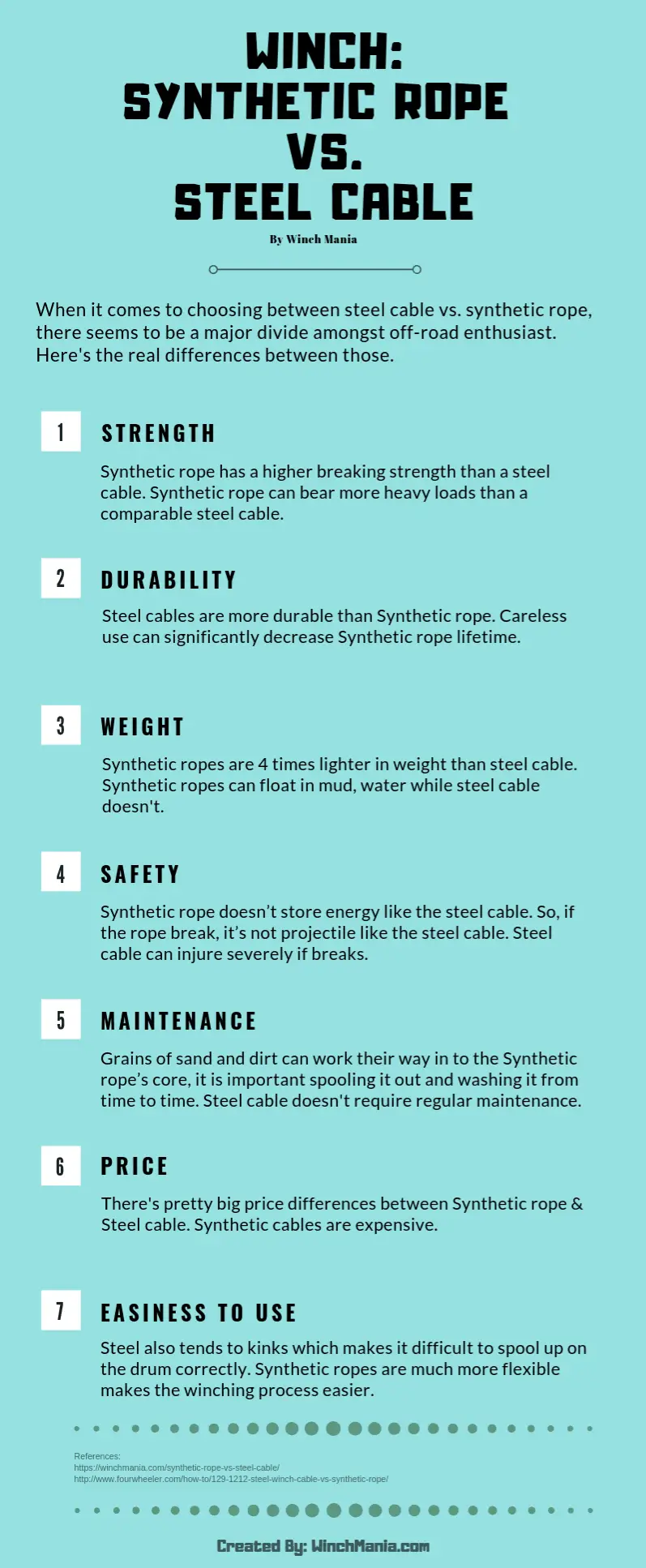
Share this Image On Your Site (Just Copy The Code From The Box & Paste In Text Mode)
Please include attribution to http://winchmania.com/synthetic-rope-vs-steel-cable/ with this infographic.
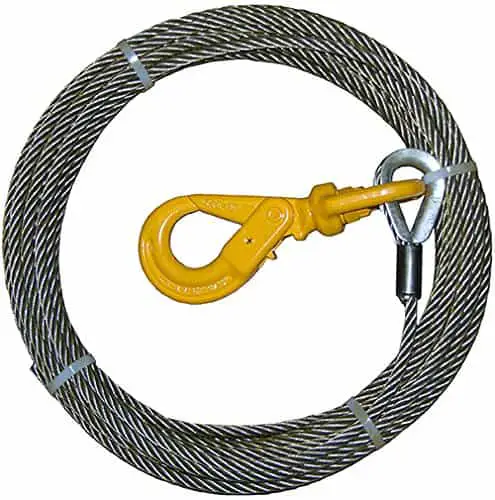
Our Rating
Since the beginning of winching, steel cable has been the industry standard for decades. They’re made of strong, aircraft-grade steel cable. They’re perfect for use on highly abrasive terrains like mud, sand, and rocks because they are less prone to abrading and fraying.
Steel cable is also more affordable than synthetic rope and requires less maintenance. They’re good for both recovery and utility work. While using a steel cable, the user should wear heavy gloves to protect his hand while handling the rope.
Some wheelers keep the line coated with chain oil or WD-40. This protects the steel and disperses moisture, preventing rust. Steel also tends to kinks which makes it difficult to spool up on the drum correctly.
The major downside of them is the wear and tear a steel cable can place on your winch if it were to become burred, rust or frayed. Using a damaged still cable will erode and damage your winch.
A damaged steel cable can break while using and can cause a serious accident to you and your vehicle. It’s a good rule to inspect your cable for damage periodically to avoid this accident.
When a steel cable breaks under load, it will snap like a whip. This is because a steel cable holds a lot of kinetic energy. Just so you can imagine how it acts when broken while under tensile pressure, imagine a rubber band snapping when pulled too much.
But because a steel cable has an exponentially higher tensile strength, it will take a lot more load to snap it. But when it does, it can produce enough power to tear through flesh – and sometimes even bones.
This is perhaps the main reason why off-road enthusiasts will more likely opt for synthetic ropes. Steel cables are a lot more damaging and dangerous when it breaks.
It is important to remember, though, that a steel cable is way tougher than a synthetic rope.
- UV stable, Strong and durable
- Abrasion-resistant
- Last for a longer time
- Less Expensive
- Require less maintenance
- Doesn’t float
- Difficult to handle
- Heavy, Can Rust
- Can create wear and tear on your winch.
- Frays or burrs, steel splinters
- Prone to kinks
- Harder to fix if breaks in the field.
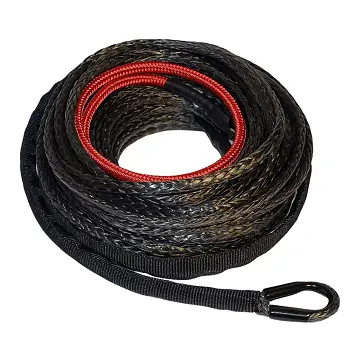
Our Rating
The synthetic rope was first introduced in the ’90s. That time, it was introduced as a safer alternative to the steel cable. Nowadays, the popularity of synthetic rope is becoming greater and much more widely available.
It is constructed from hi-tech polyethylene and proven to be 15 times stronger than the first one. They’re considerably safer than the steel cable.
The less weight and high flexibility make it much safer and easier to handle the rope than the steel cable. Also, it won’t develop the burrs, which makes it safer to handle without gloves. But if you use it without care, this will cause knots.
Synthetic rope is even mandatory in many big sanctioned off-road events. They’re 4 times lighter in weight than steel cable and don't store kinetic energy like the steel cable does. So, if the cable breaks, it will not snap as powerfully as a steel cable does.
Though the synthetic winch rope has a higher breaking strength, it is breakable. But if a rope breaks, you can repair it in the field with proper braiding techniques.
So, if synthetic rope offers you a lot of excellent features, why would you run for steel cable? Well, it has some downsides too.
All the synthetic ropes are not made equal. They can be weakened by heat, chemicals and UV exposure. But high-quality ropes come with a protective coating to prevent these kinds of damages. This rope can also hold water which could add extra weight and make the winch difficult to use.
The synthetic rope also requires special maintenance than the steel cable. You should wash the rope after every use especially after using in sand or muddy situations.
Ultimately, what can cause you to reject a synthetic rope is how expensive it can be. Because it is expensive – both initially and in the long run. A synthetic rope is more expensive than a steel cable sire. And because it can break more easily than a steel cable wire, it may need to be replaced more often than you would the steel cable counterpart.
An important aspect of a synthetic rope is that it does not dissipate heat as well as a steel cable. This lack of dissipating feature can ultimately damage the internal brake drum. If that brake drum breaks, then you are up for a lot more expense.
- Stronger, Lightweight
- Doesn’t store energy
- Flexible and easier to handle
- Can be repaired in the field if it breaks
- No kinks or permanent coiled shape
- Great for snow plow applications
- Resist Rust
- Floats in mud/water
- Subject to internal fraying by sand and dirt
- Can retain water and freeze
- Requires extra UV protection
- More expensive
- Needs to be washed regularly
The Choice is Yours
The main concern with the steel cable wire is the safety. And the main concern with the synthetic rope is the expense. Those are my opinions.
There is not really a better rope – universally speaking. Each has their own winning and losing factors. The matter of the choice is entirely in your hands. The determining of which kind of winch cable to use is entirely up to your own preferences.
If you would rather have the steel cable wire, make sure that you inspect it before use. Take all the necessary precautionary steps you can take.
If you would rather play it safe and get a synthetic rope, make sure that all possible extra expenses are accounted for.
That’s all. I’ve stated almost everything you need to make the right choice. Now it’s up to you to make the decision. Please, do share the article if you’ve liked it.
Lastly, if you are planning to buy a winch but don’t know which one will be good, then you can check our x bull winch review /smittybilt winch review /mile marker winch review /badland winch review/ Superwinch Terra review/ warn pullzall vs drill winch review.


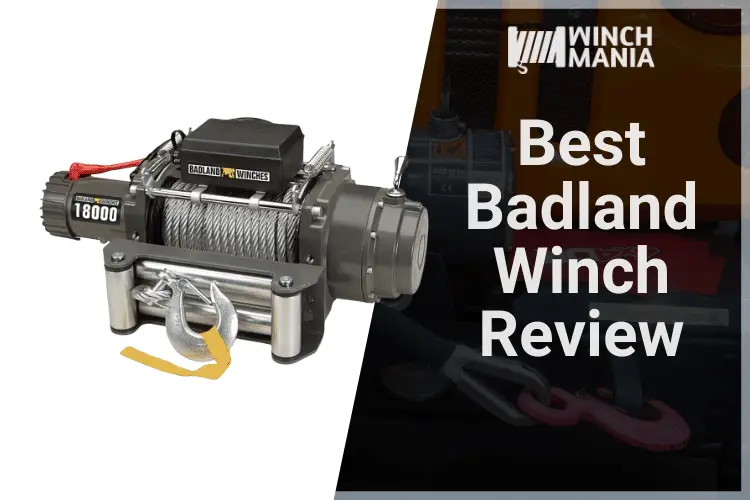
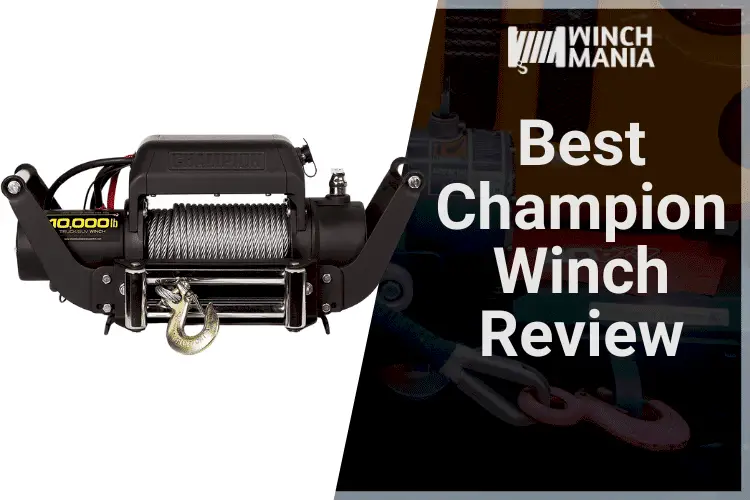

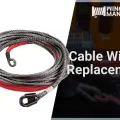
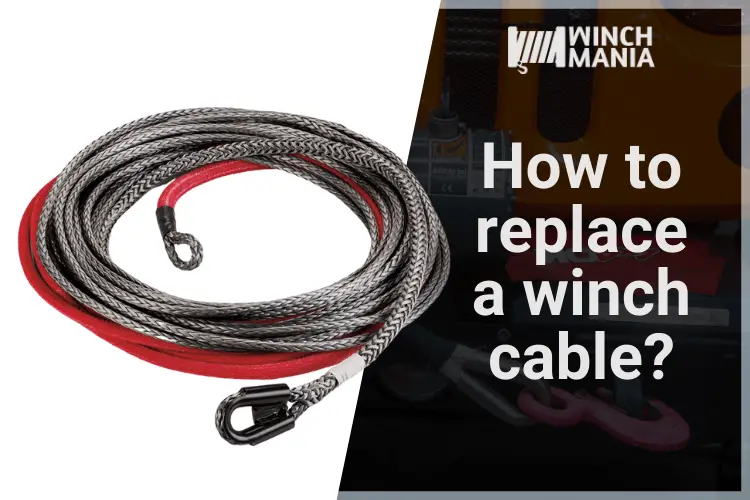
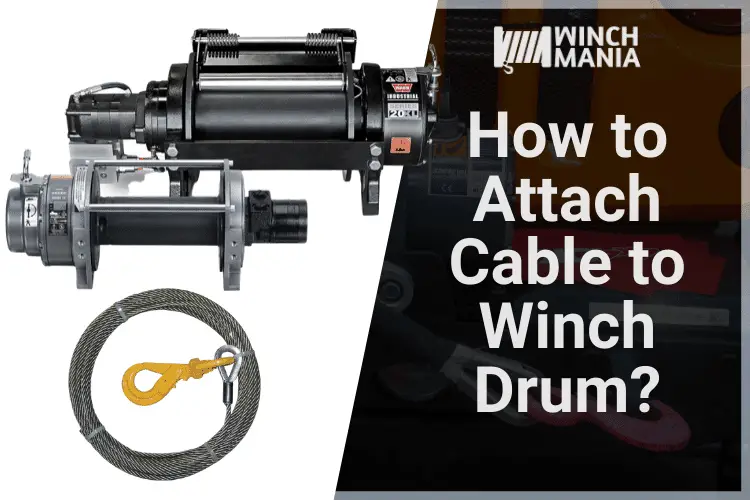
Thanks for this informative guide!
I like synthetic rope because it’s much safer.
Which winch rope will last long. Synthetic or steel?
Synthetic rope if you use them properly.
I just replaced a broken steel cable on a Smittybilt which is mounted on my Suzuki Samurai.
Upon the first use, it “bird nested” like a large baitcasting reel. On my other rig, I have a Warn 12000 on a hidden mount on my Power Wagon. I know that the Ram set up is not good for synthetic rope due to proximity to engine heat. But, I am considering placing another Warn winch with synthetic rope onto the Sammy. I can then use a synthetic rope on the Smittybilt which will be remounted onto a portable receiver mount as an auxiliary (rear) winch. It is important to have good anchor spots when pulling out a stuck tractor.
Also, I recommend always to wear good leather gloves no matter what winch cable used. Synthetic might be smooth new, but it like nylon mooring ropes, it can have rough edges and strands to burn the hands. From what I have seen in FL, UV and heat are the major degraders on synthetic rope.
If you’ve ever had a steel winch bust on you. You’ll be glad you bought one with a synthetic rope. The danger aspect outweighs the risk significantly.
A steel cable can cause serious injury, but mainly death is what you’re worried about when it snaps back at you. It’s like a whip but made of steel. It easily breaks through plastic, glass, and light metal. It’s known to kill and permanently injure people.
If you’re dead set on using a steel cable use one that comes with a long remote so you can stand way back. Like way back because you don’t know what direction that cable is going to whip, safe travels my friends.